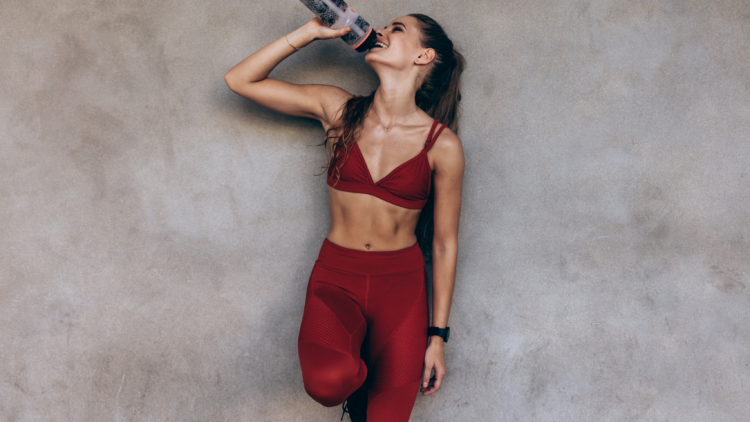Is the recommendation of drinking 2 litres of water per day overrated? Scientists discovered factors you should consider to improve your performance and wellness.
Drinking 2 litres of water per day is a general public health recommendation. But you are very unique when it comes to your fluid needs. So this won’t always be true.
Body composition
If you live in a high humidity location then drinking 2 litres of water per day won’t even touch a base of your fluid needs. Achieving optimal hydration can be challenging in such conditions.
Your body is made up of around 65%-70% water. But if you have more fat then it might be less because fat stores very little water.
However, if you have more muscles than fat then the story is different. Then you might be made up of 70% of water.
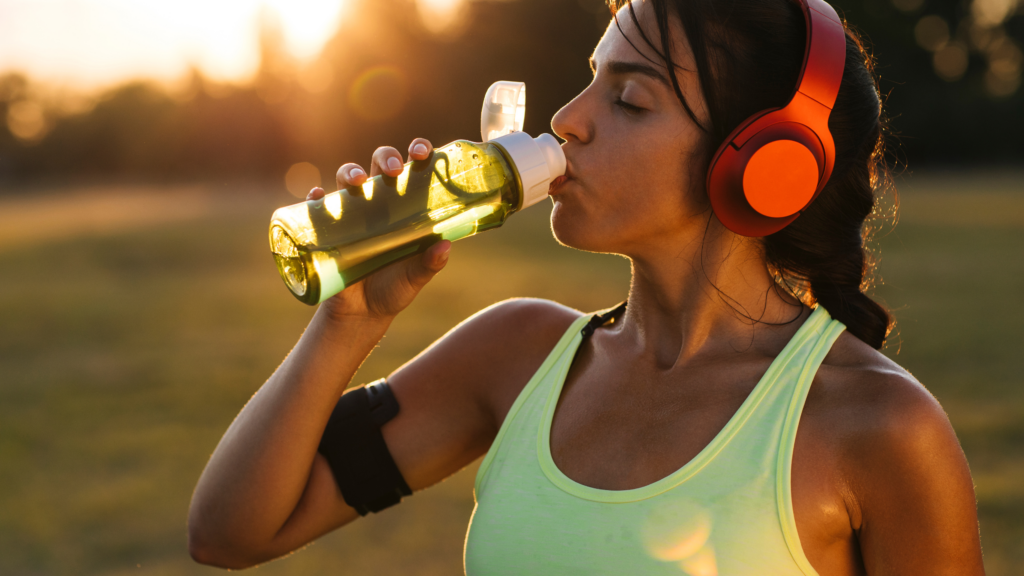
When you neglect yourself during aging and you gain more fat and lose muscles, like the majority of the population, things become more serious. In this situation the amount of body water will change too. This becomes very important when you are hospitalised and need fluid restoration etc.
You can do 12min of weight lifting a week to grow your muscle mass and stay fit your whole life. Click here to learn how.
That’s why your body composition is very important to estimate your fluid needs and optimal hydration. If you think that it’s only a few percent then you may want to think again. Even a 0.5% difference will have a huge impact on your everyday activities.
Function of water
Water definitely gives you relief when you are thirsty. But clinically it has impact on your internal functions:
- it play a transport role during digestion
- it transports nutrients to the cells within the blood
- maintains correct blood volume
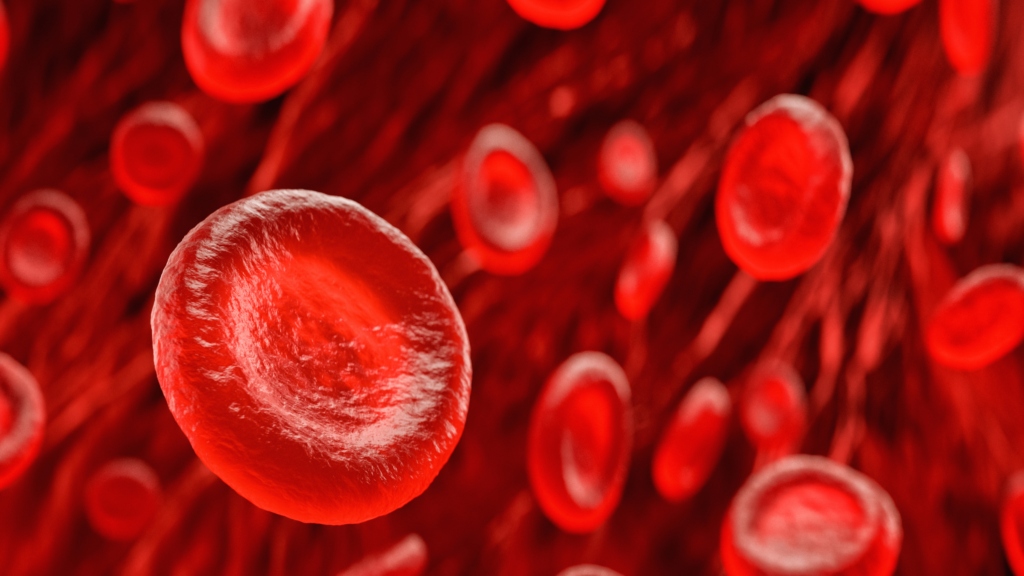
And all those 3 functions are what make you healthy.
Professor Roberta H. Anding (director of Sports Nutrition and Clinical Dietitian) gave a great simple example, one you’ll easily remember. She referred to the situation when you are sitting and suddenly stand up and get light-headed and dizzy. She explained that this is caused by not having enough blood volume. When this happens, you’re not delivering enough carbohydrate to your central nervous system so your brain goes into a hold mode. I think we all had this experience and this is an illustration of how water is serving as a transport vehicle and plays key role in your optimal hydration level.
Other key aspects relate to mechanical functions like:
- lubricating joints
- tears in your eyes
- regulating heat – water is good medium for holding and getting rid of heat
How do you store water?
Majority of this is going to be around the cells and in the bloodstream. Your diet and the state of your health can impact where your body water is located.
If you have low protein in your blood then some of the water can seep out of your blood vessels and actually goes into your tissues. This is a situation you don’t want to have as it’s very hard to fix this issue. When this happens then water gets stuck in the tissues and can’t be urinated out. So the challenge is to maintain your wellbeing and not having water in a place that doesn’t belong.
Worth remembering that as an adult, you eliminate somewhere in the range of 2 – 2.5 liters of water a day. This comes through urine, sweating ,breathing, bowel movements. If you exercise and your breathing is increased, you also will lose water as your breath is 100% humidified. When you have a fever then your heart rate, body temperature and respiration rate will go up. So the amount of fluid that you would lose is going to increase based on your state of wellness. Managing your optimal hydration is critical.
Area you live in
When humidity is low and your body needs to cool you down, you would notice a sweat on your skin. It would then dry your skin, cooling your body by simply evaporating.
In areas with high humidity you will find it very difficult to cool your body down. Your sweat will not be able to evaporate. And your body will be producing more sweat as it will not get the signal of effective cooling.
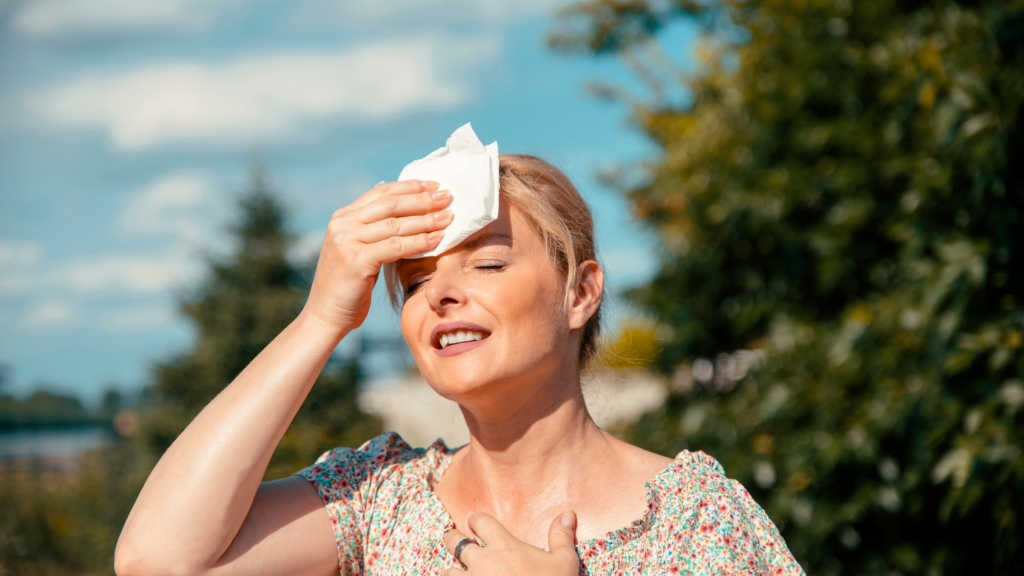
Again in a cold environment, humidity at your home would be low and you’ll notice dry lips, very dry skin, and mouth. You may not think that you need to drink much water because you wouldn’t get that sensation of dehydration. But you need to know that you lose moisture through your skin but in a different way.
Drinking about 2 litres of water per day will keep most people at optimal hydration level. But you will benefit from knowing that food you eat is made of water too. Hence it will add to your daily water intake.
For example fruits, vegetables, milk, yogurt and even soup have between 80-90% of water.
If you struggle drinking more water and staying hydrated, you can think of food. This will definitely make a difference to your needs and your wellness.
Facts you should know about

Humidity in aeroplane, in pressurised cabins, is extremely low, nearly zero. Your flight can contribute to a huge fluid loss. Think about this one for a moment. You can be dehydrated without exercising and sweating. This happens because of your breathing. Fluid loss that’s coming in your breath is really pretty significant. Some reports suggest that when aeroplanes land the humidity in the cabin is about 40%. That’s all being put into that air by your breath.
How to test your hydration level?
You lose a significant amount of fluid through your urine. So your best approach here is to check your urine. Not during the day or night but looking at first morning urine.
Your urine should have pale lemonade colour which would indicate that you looked after yourself well. If it looks like an apple juice then you probably should improve the amount of water you drink.
If you wake up a few times during the night then again just look at your urine concentration colour.
What about thirst?
There is a delay between the time you get dehydrated in the time you actually experience thirst. If you feel thirsty then you are already dehydrated.
Worth remembering that the older you get then the less sensitive this thirst mechanism is.
That’s why older people don’t feel they are dehydrated or thirsty as much as they actually are.
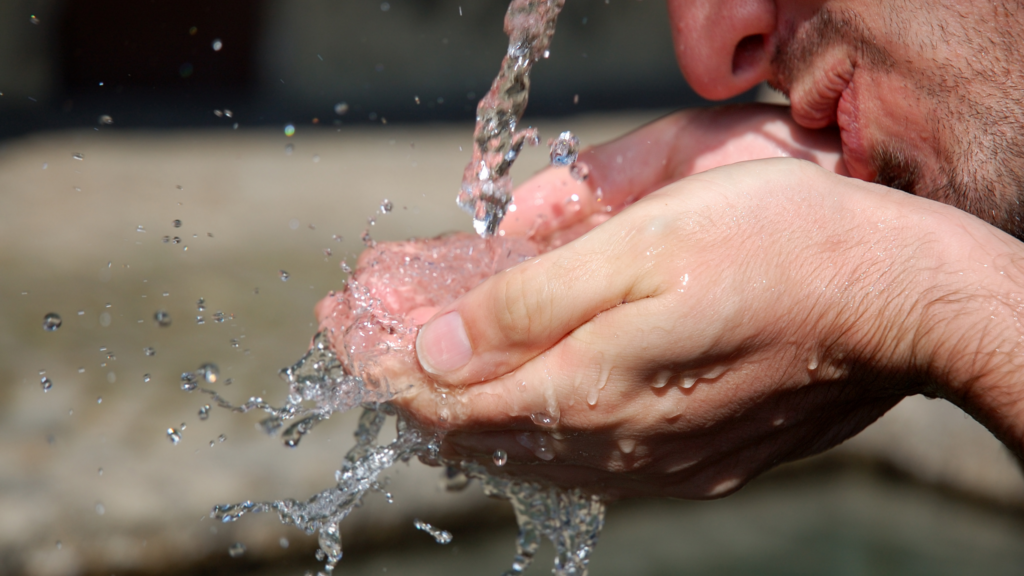
Other things that can play with your thirst mechanism are painkillers. They decrease your need for drinking more fluids and have optimal hydration but it doesn’t mean you don’t need it. It means that you don’t get those triggers you feel you need.
Measuring hydration during exercise
To ensure you’re well hydrated after exercises all you can do is to get on the scale. Weight yourself before exercise then after. And drink as much water to get to the same weight as you had before you started your exercise.
A scale can only tell you how much you weigh. It can’t tell you:
- your percent body fat
- how much lean muscles you have
- anything other than how hydrated you are
1-2% decrease in your body weight is going to affect your exercise performance by 15 to 20%. Therefore, if you want to have a performance booster look out for water.
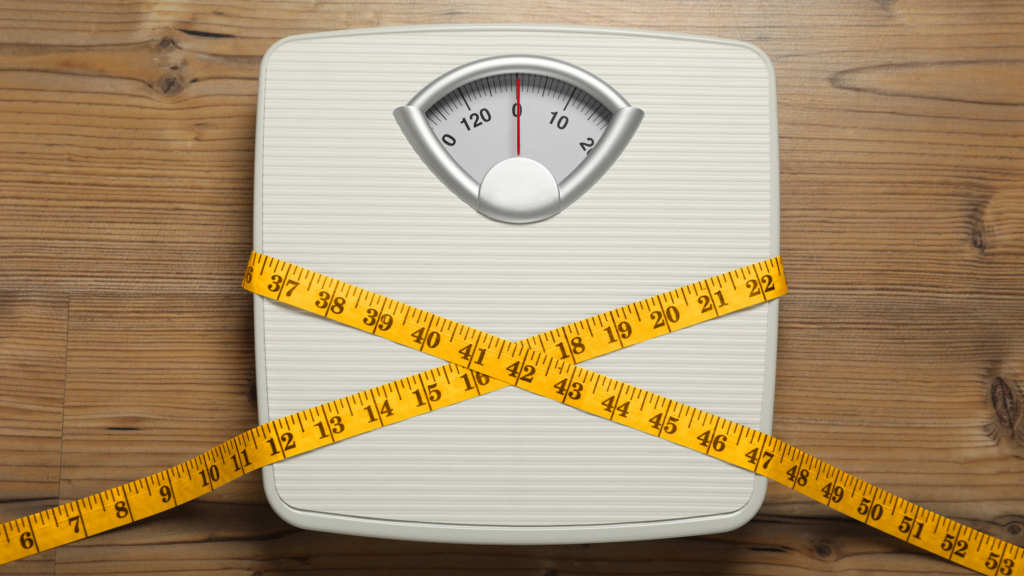
The American College for Sports Medicines provides guidelines on what to drink when we’re exercising. Here are their recommendations:
- less than 1 hour, moderate intensity – drink water
- Over 1 hour, higher intensity or over 30 min in heat – drink sport drink. Science confirmed that it provides fluid and electrolytes, especially sodium that you lose with your sweat. Don’t believe videos claiming you need potassium – that’s not true. If you get cramps during exercise it’s because of sodium loss.
Sport drinks are not lunch beverages, those are drinks designed to drink during sport activities. They provide a source of fluid, calories and sodium you will very much need.
How much water can you handle?
You can be either dehydrated or overhydrated. Your signs of dehydration are weight loss, confusion, dry skin that’s hot to the touch and elevated core body temperature.
You can’t easily measure your core body temperature as it’s a medical procedure done in hospital. But you should remember is that when you’re dehydrated, your body will exhaust itself by producing sweat to cool your body. As this will not be possible then the risk of heat related injury, heat exhaustion or heat stroke increases.
If you’re significantly dehydrated then you can Dehydration you can have IV fluid replacement to gain back optimal hydration. Something that many professional athletes do during their halftime break. There’s no way the gut can handle all that extra fluid loss at one time. Your gut, at a time, can handle approximately 1-2 litres.
When you drink much more water than you need and become overhydrated, what happens then, you may ask?
Well, if you drink significantly more fluid than you need, you’re actually diluting the amount of sodium in your blood.
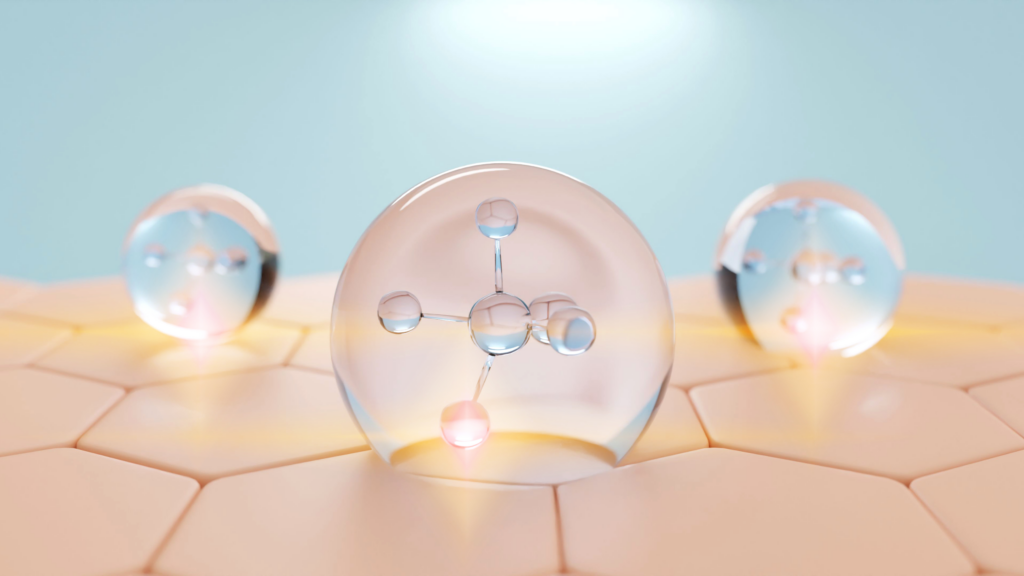
Sodium and potassium are two key electrolytes your body works really hard to try and keep those two in balance. When you dilute the sodium level in your blood to a point where you can actually have swelling of the brain and die.
You can observe examples of hydration or overhydration by looking at the marathon runners. They reach the final line and are dizzy and collapse. On sad events when runners died, their weight was higher c.2kg, meaning 2 litres more of fluid than prior to their running event. Bear in mind that they’re expected to lose weight, approximately 2-5 kg (2-5 litres of water). So dehydration is also one of the key reasons for their death.
Hence the best way is to check your urine colour and your weight to have control over your body fluid and to know how much you must hydrate yourself during and exercise.
Coffee, tea, alcohol and energy drink
Coffee and tea are a whole food source of caffeine, have nutrition in them and are vital chemicals and great anti-oxidants.
Alcohol stimulates your body to produce more urine. Hence drinking excess amounts can lead to dehydration.
Some medication can also cause your dehydration. Always best to consult with your doctor or listen to advice if you are required to weigh yourself every day during the course of treatment.
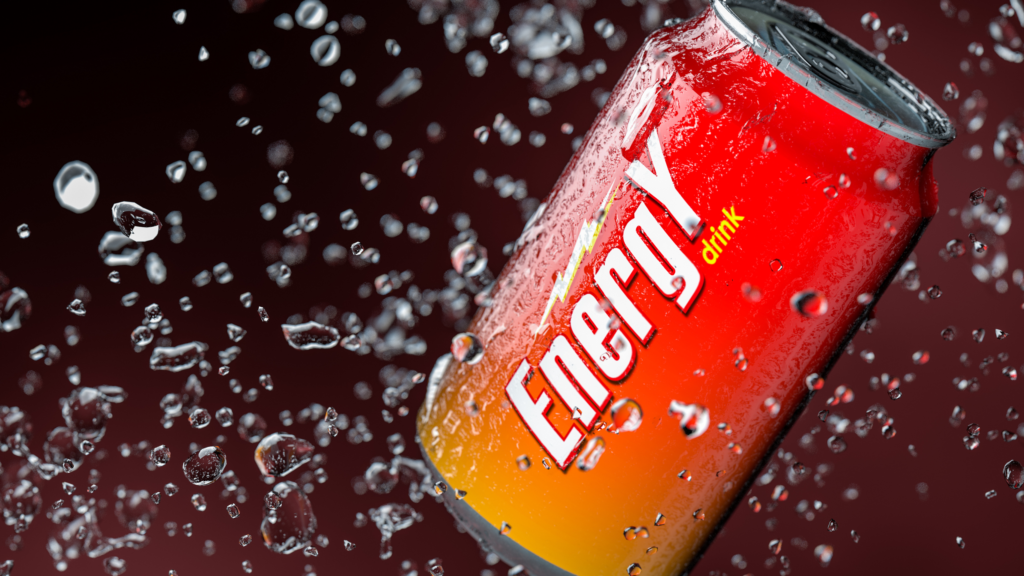
Energy drinks have a significant amount of caffeine.
They promote vitamins and amino acids but the long-term consequences are pretty scary.
In summary, energy drinks are going to behave differently than coffee and tea.
So to be on a safe side, try to look for a whole food source of caffeine rather than a synthetic source of caffeinated beverages.
Some awesome resources
Okay, my Rock Star! Did you get some value? I hope you did, because each week I put my heart into making sure you get amazing information from my blog.
While I have your attention, I also need you to know that I have for you fantastic audiobook recommentation that will help you even more on above topic.
Click here to listen to ‘Nutrition Made Clear’ by Roberta H. Anding.

